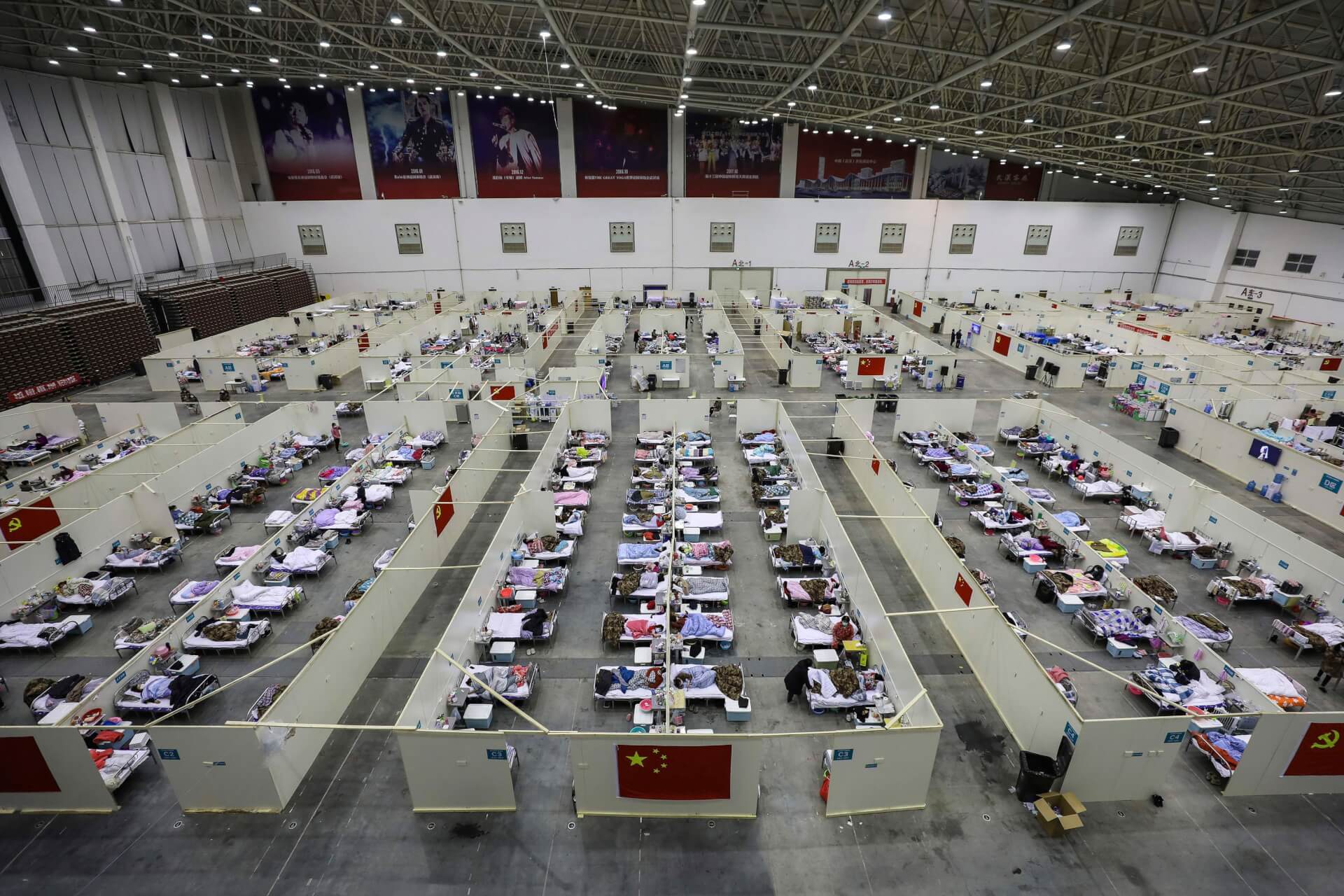Hospitals in China were under extreme strain on Wednesday as the country continues to battle a surge in COVID-19 cases in the wake of the government’s relaxation of stringent zero-COVID public health measures.
Staff at Huaxi, a large hospital in the megacity of Chengdu, said that since the easing of measures on 7 December, they were “extremely busy” catering to COVID-positive patients.
“I’ve been doing this job for 30 years and this is the busiest I have ever known it,” an ambulance driver told Reuters on the condition of anonymity.
On Tuesday evening, long queues were reported inside and outside the hospital’s emergency department and at the next-door fever clinic.
An emergency department staff member confirmed that “almost all of the patients have COVID-19.” She further divulged that the hospital did not have stocks of any COVID-19-specific medication and was only able to provide drugs for specific symptoms, such as coughing.
Zhang Yuhua, a staff member at the Beijing Chaoyang Hospital, said that patients who had checked in recently were mainly elderly citizens and were critically ill with underlying diseases.
Zhang added that those receiving emergency care had increased from 450 to 550 per day, from roughly 100 daily patients before.
Moreover, the number of funeral processions in a day has also been reported to have spiked.
“We have to do this about 200 times a day now. We are so busy we don’t even have time to eat,” a funeral worker at a crematorium in Chengdu said. They added that this was “the case since the opening up,” compared to earlier, when there were “around 30-50 [funerals] a day.”
“Many have died from COVID,” another worker said.
Rush to occupy hospital beds for medical treatment in China…
— Jyot Jeet (@activistjyot) December 23, 2022
#COVID #chinacovid #COVID19 #coronavirus #China #CovidIsNotOver #CovidIsntOver #Corona pic.twitter.com/e81xSkY5or
A worker at another crematorium in the city told the news agency that “Cremation slots are all fully booked. You can’t get one until the new year.”
Despite the apparent surge in COVID-19-related deaths, official statistics show only one COVID-19 death in the last week.
Against this backdrop, some countries have levied additional travel requirements for travellers arriving from mainland China.
The United States said that it was taking the step due to “the lack of transparent data, including viral genomic sequence data.”
Emergency room of a hospital in #Tianjin City of China…
— Jyot Jeet (@activistjyot) December 22, 2022
#COVID #chinacovid #COVID19 #coronavirus #China #CovidIsNotOver #CovidIsntOver pic.twitter.com/SC24pnmDZO
India and Japan have also made a negative COVID-19 test mandatory for arrivals from China. In Japan, those testing positive will have to be quarantined for a week. The country will also limit airlines from increasing flights to China.
Responding to these requirements from international governments, a spokesperson for the Chinese Foreign Ministry said Tuesday that “COVID-19 measures should be scientific, moderate and should not affect the normal flow of individuals.”
According to a new study carried out by the University of Macau and Harvard Medical School, China’s sudden relaxation of public health measures to counter the spread of COVID-19 could kill as many as 1.5 million people over the next six months.
This is so sad.
— Brijesh Singh (@Brijeshbsingh) December 22, 2022
The First Affiliated Hospital of Chongqing Medical University. #china #covid pic.twitter.com/x1YzmfrRZ6
However, they found that the country could reduce its possibly grim COVID-19 death toll by more than seven-fold, to less than 200,000 deaths, if authorities implement appropriate public health measures to help slow its spread, increase vaccination rates, and ensure adequate medical supplies.
Furthermore, researchers found that the lack of a “flatten the curve” strategy, combined with China’s current immunity level, will result in more than 1.27 billion people getting infected within three months.
The strategy would also prevent a surge in new infections so that the country’s healthcare system is not overwhelmed. Government data shows that currently, China has only 4.5 intensive care unit beds for every 100,000 people.
The study was published as after Beijing rolled back some of its heavy-handed COVID-19 containment measures after violent protests broke out across the country last month, when citizens called for democracy and the downfall of the Chinese Community Party and President Xi Jinping.
As part of the significant loosening of restrictions, authorities rolled back requirements of regular testing, digital health passes, contact tracing, and quarantine durations.
Since then, hundreds of health workers have tested positive for the virus, rendering hospitals short-staffed and forcing some to suspend non-COVID treatments.

